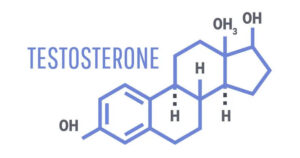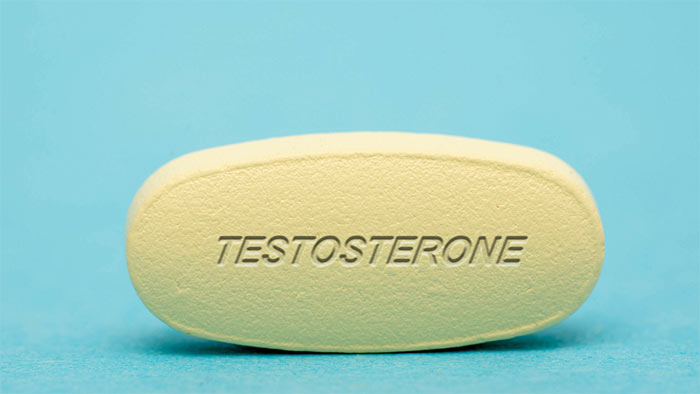Erectile dysfunction (ED), a prevalent issue affecting many men globally, often harbors deep connections with the hormone testosterone. This hormone, synonymous with masculine attributes and virility, has been the subject of extensive research and medical discourse. As Dr. Abraham Morgentaler articulates in his seminal book “Testosterone for Life,” “Maintaining optimal levels of testosterone can significantly influence a man’s vitality, including his sexual performance.” This article offers a deep dive into the relationship between testosterone and ED, drawing upon authoritative insights from the realm of medical literature.

Does Testosterone Help With Erectile Dysfunction?
Undoubtedly, testosterone holds a central role in male sexual health, impacting both libido and erectile function. While it may not be the sole hero in the fight against ED, it is certainly a chief player in the narrative.
In his renowned study, Dr. J. Francken emphasizes, “Testosterone therapy can indeed be a powerful tool in alleviating symptoms of ED, offering a restoration of both sexual desire and function, a rejuvenation that is often much needed and welcome.” However, the expert also urges caution, advocating for a personalized, case-by-case approach to testosterone therapy. In light of this, the correlation between testosterone and erectile health reveals:
- Libido: Adequate testosterone levels are vital in maintaining a healthy libido. A dip in these levels often mirrors a decrease in sexual desire, a precursor to ED.
- Psychological Aspect: Beyond the physiological role, testosterone also shores up mental health, aiding in mood stabilization, and potentially reducing anxiety – factors inherently linked to sexual performance.
Best 10 Testosterone Boosters for ED
Embarking on the path to identifying potent testosterone boosters warrants a careful appraisal of a plethora of options grounded in scientific evidence and expert analyses. Let’s dissect the top ten boosters renowned in medical circles:
- DHEA (Dehydroepiandrosterone): Often hailed as a precursor to testosterone, it offers promise in boosting testosterone levels, as underscored by Dr. Allan J. Pantuck.
- Fenugreek: A herb with a rich legacy in boosting libido and maintaining optimal testosterone levels.
- Zinc Supplements: A viable option for those grappling with zinc deficiency, a known culprit in dwindling testosterone levels.
- Vitamin D: Amplifying Vitamin D intake can potentially shore up testosterone levels, a fact emphasized in various medical treatises.
- Ashwagandha: This herb is revered for its potential in enhancing both testosterone levels and sperm quality.
- Tongkat Ali: A Malaysian ginseng, known to bolster testosterone levels, especially in individuals experiencing chronic stress.
- Ginger: A common kitchen spice with purported benefits in enhancing testosterone levels.
- Mucuna Pruriens: Known for enhancing dopamine levels, it also harbors potential in increasing testosterone levels.
- Pomegranate Juice: Anecdotal evidence suggests a role in improving testosterone levels and erectile function.
- Healthy Lifestyle: Perhaps the most sustainable booster, encompassing a balanced diet, regular exercise, and adequate sleep.
Dr. Pantuck posits, “Engaging in a lifestyle that naturally elevates testosterone levels can often be the most holistic and healthful approach.”
Risks of Testosterone Boosters
While the arena of testosterone boosters offers a ray of hope, it also presents a labyrinth of risks, necessitating meticulous navigation. Delving deep, we find:
- Prostate Issues: Dr. Ian M. Thompson articulates the direct correlation between escalated testosterone levels and heightened risks of prostate ailments.
- Cardiovascular Risks: A shadow looms over the use of boosters, with potential threats to heart health, especially in the elder demographic.
- Liver Damage: Some supplements carry the risk of inflicting liver damage, a critical aspect to consider.
- Skin Reactions: Topical boosters are not without their share of detractors, with reports of skin reactions dotting medical literature.
Dr. Thompson emphasizes, “Venturing into testosterone therapy demands a prudent approach, attuned to the individual’s medical history and current health landscape.”
Final Thoughts About Testosterone Boosters for Erectile Dysfunction
The narrative surrounding testosterone boosters and erectile dysfunction is a complex tapestry woven with threads of hope, efficacy, and caution. Dr. R. Shabsigh, in his insightful work “The Testosterone Deficit Syndrome,” admonishes, “While testosterone can indeed be a panacea for many, it demands a conscious, informed approach, orchestrated with a deep understanding of both its gifts and its perils.”
- Personalized Therapy: Tailoring therapy to individual needs, based on a detailed medical evaluation, stands paramount.
- Medical Guidance: The guidance of a healthcare provider is not just recommended but essential in charting a safe course through the terrain of testosterone boosters.
